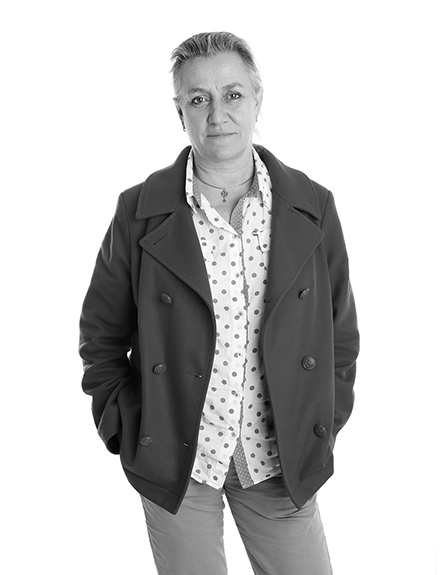| marie-hélène le ny |
|
photographiste |
|
"My
calling to join the medical profession dates back to childhood.
Inspired by Albert Schweitzer, I wanted to do humanitarian medicine.
During my internship, I joined internationally renowned teams
and learned quite a bit about the medical approach. Inspired
by the hard sciences, this procedure must take into account the
uncertainty of medical science, the challenge being to successfully
disentangle the true from the false in medical investigation,
for example when evaluating therapies. This falls under both
the humanities and hard sciences,i.e., epidemiology, statistics
and basic research, to develop treatment. Empathy, which is indispensable
for treating people effectively, is as important as scientific
training. Unfortunately, scientific and technical training has
largely taken precedence over the development of a critical mind,
a spirit of responsibility and working on human relations - professional
qualities that must be developed. I undertook a rigorous scientific process to demonstrate once again the immense toxicity of Médiator, a fact that is known but kept concealed. I also discovered the dark side of these scientific evaluations which can be deeply distorded, or even falsified, because of conflicts of interest - especially between industry, the scientific community and the medical community. The current university system encourages the increasing use of private funding because the scarcity of public research funds at all levels. This can only lead to a conflict of interest and to waste. My protestant upbringing, which revolved around lessons on critical thinking, free will and responsibility, made clear what I should do. But history caught up with me because the Médiator affair and the major trial that followed to establish the facts propelled me into a professional and personal commitment." |
|
||
|
Irène
Frachon, |
|||
|
|
|
|
